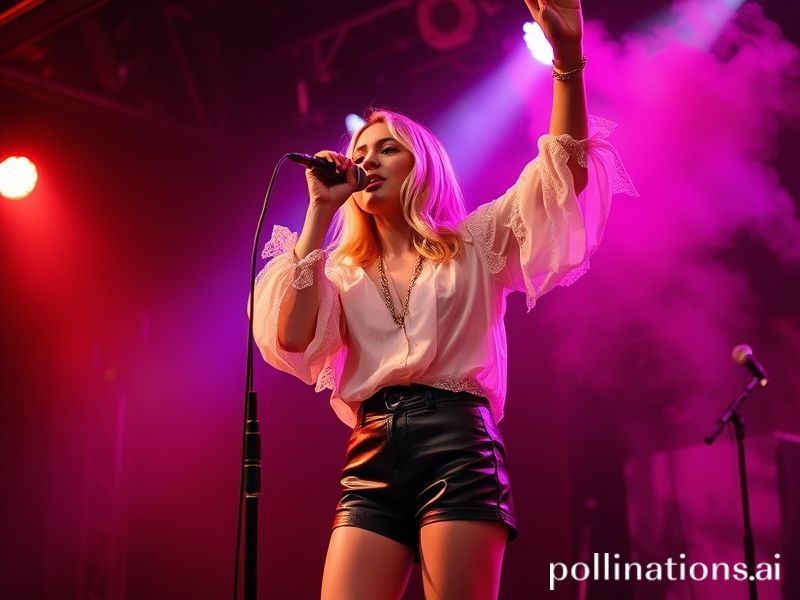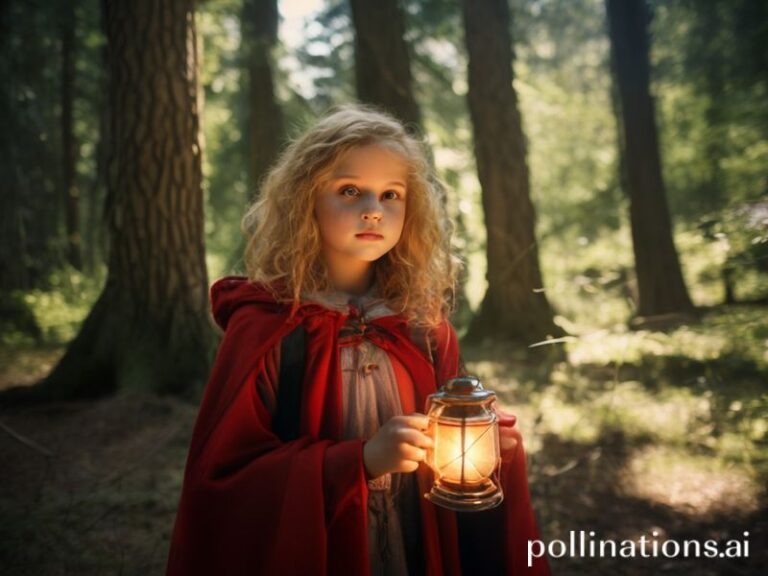diana vickers
The Curious Case of Diana Vickers: How a British Pop Runner-Up Became the Accidental Barometer of Global Chaos
By Eduardo Valdez, International Correspondent, Dave’s Locker
Somewhere between the fall of Kabul and the rise of AI-generated boy bands, Diana Vickers—yes, the barefoot X-Factor finalist with the voice like a haunted teacup—slipped back into the planetary conversation. Not with a bang, nor even a whimper, but with a soft, distinctly British “Oh, hello again,” the way one might greet a neighbour whose house you accidentally set on fire in 2009.
To the uninitiated, Vickers is merely a footnote in Simon Cowell’s long-running experiment in monetising pub karaoke. Yet from Seoul to São Paulo, data analysts, meme archivists, and bored supply-chain managers have noticed that Google searches for “Diana Vickers where is she now” spike in direct correlation with global uncertainty indices. When crypto markets convulse, her 2010 single “Once” re-enters TikTok. When a new war flares, acoustic covers of “Sunlight” bloom on Ukrainian rooftops like sonic mould. The phenomenon is so reliable that hedge funds in Zug now short wheat futures every time her Spotify monthly listeners crest the two-million mark.
Why Diana? Why not Eoghan Quigg or that other one who looked like a startled meerkat? The short answer is that the universe enjoys a cosmic punchline. The long answer involves Brexit, the death of the monoculture, and a generation so traumatised by reality that it clings to the last era when problems could still be solved by a key change at the two-minute-thirty mark.
Across the Atlantic, American think-tankers have labelled the syndrome “Retromelancholia”—a mass regression to simpler soundtracked heartbreak. In Beijing, censors quietly scrub fan forums dedicated to her 2013 West End turn in The Rise and Fall of Little Voice, fearing the implicit critique of any system that builds you up only to evict you from the spotlight once the ad revenue plateaus. Meanwhile, in Lagos, Afro-disco producers sample her breathy vibrato into club tracks titled “Ghost Capitalism (Diana’s Lament)” because nothing says late-stage imperial decay like a Lancashire lilt over 128-BPM log drums.
Vickers herself appears baffled by the resurrection. In a Zoom interview from her Cumbrian home—background: tasteful succulents, one defiant stiletto dangling from a ceiling beam—she admits she thought the world had “moved on to rosé flavoured gins and doom-scrolling.” Instead, she has become a sort of secular saint for the emotionally exhausted: patron of cancelled brunches and abandoned Duolingo streaks. She laughs, a sound somewhere between a sigh and a cash register, when told that teenagers in Jakarta are using her 2009 paparazzi photos as lock-screen talismans against algorithmic anxiety.
The darker joke, of course, is that her career trajectory mirrors the global economy: meteoric ascent, vertiginous plunge, then a zombie afterlife sustained by nostalgia and leveraged buyouts of intellectual property. Each summer festival slot she accepts is less a gig than a séance for neoliberal optimism. Each new acoustic EP is a polite shrug at the end of history.
And yet the planet keeps spinning, or at least wobbling in a recognisably rotational manner. Climate refugees huddle round Bluetooth speakers playing “The Boy Who Murdered Love” because minor-key heartbreak is warmer than the rain. In Kyiv metro shelters, a choir of displaced marketing executives harmonises on “My Wicked Heart” while the power flickers. Somewhere in Silicon Valley, an AI ethics board debates whether to feed her entire discography into a large-language model designed to comfort lonely gig workers. They decide against it; the risk of existential despair is deemed too high.
So what does it all mean? Perhaps nothing. Perhaps Diana Vickers is simply the glitch that proves the simulation’s sense of humour is as dry as British rail sandwiches. Or perhaps, in an age when every geopolitical tremor is instantly gamified into memes and ETFs, the reappearance of a mid-tier pop starlet is the closest we get to collective catharsis—three minutes and forty-two seconds where we remember that once, we believed the chorus could save us.
The song ends. The lights stay off. Somewhere, a notification pings: “Diana has announced an intimate European tour—tickets from €49.99.” Humanity exhales, clicks Buy Now, and braces for the next verse of the apocalypse.







